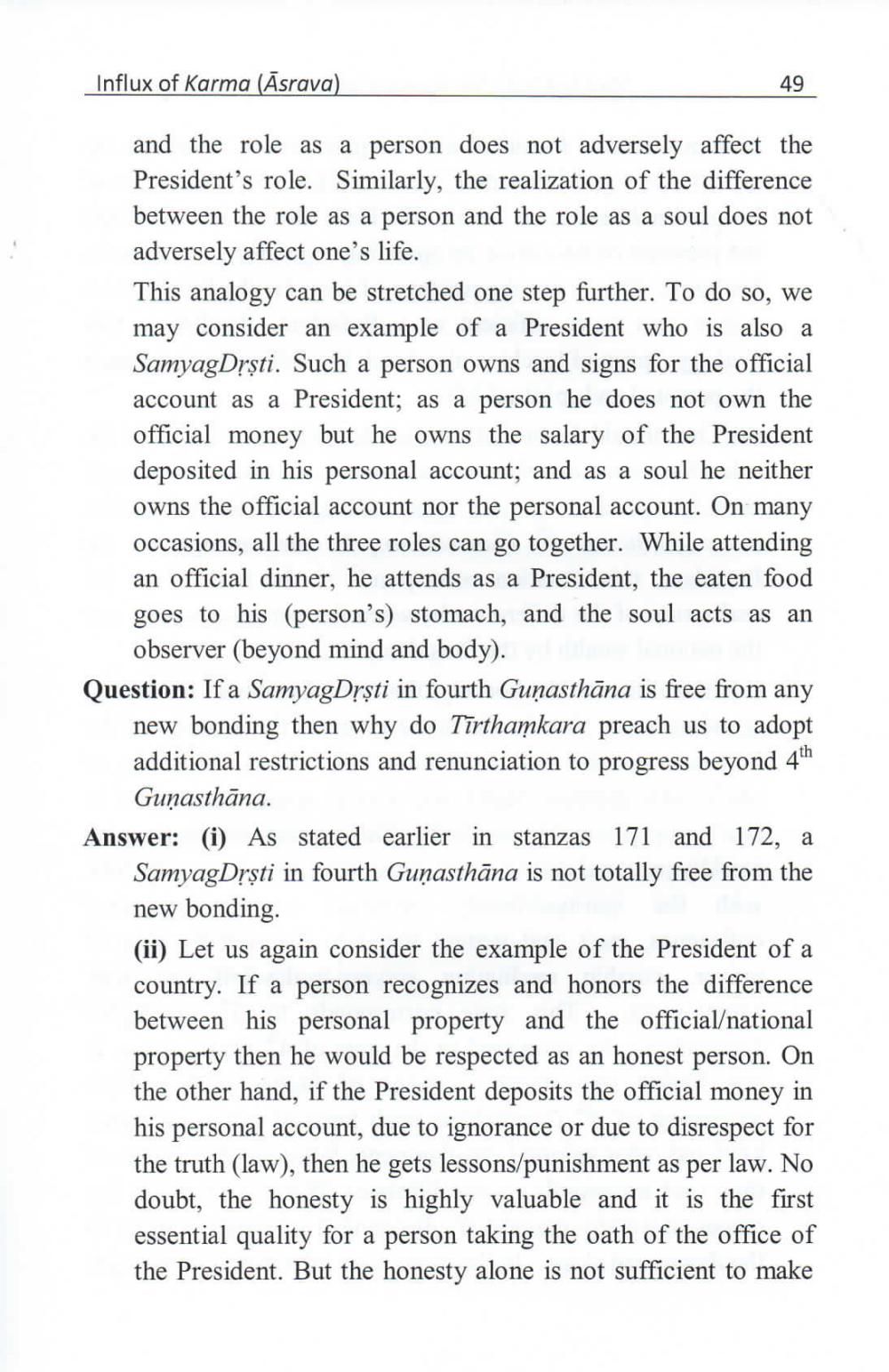________________
Influx of Karma (Asrava)
49
and the role as a person does not adversely affect the President's role. Similarly, the realization of the difference between the role as a person and the role as a soul does not adversely affect one's life. This analogy can be stretched one step further. To do so, we may consider an example of a President who is also a SamyagDrști. Such a person owns and signs for the official account as a President; as a person he does not own the official money but he owns the salary of the President deposited in his personal account; and as a soul he neither owns the official account nor the personal account. On many occasions, all the three roles can go together. While attending an official dinner, he attends as a President, the eaten food goes to his (person's) stomach, and the soul acts as an
observer (beyond mind and body). Question: If a SamyagDrști in fourth Guņasthāna is free from any
new bonding then why do Tīrthamkara preach us to adopt additional restrictions and renunciation to progress beyond 4th
Guņasthāna. Answer: (i) As stated earlier in stanzas 171 and 172, a
SamyagDrști in fourth Guņasthāna is not totally free from the new bonding (ii) Let us again consider the example of the President of a country. If a person recognizes and honors the difference between his personal property and the official/national property then he would be respected as an honest person. On the other hand, if the President deposits the official money in his personal account, due to ignorance or due to disrespect for the truth (law), then he gets lessons/punishment as per law. No doubt, the honesty is highly valuable and it is the first essential quality for a person taking the oath of the office of the President. But the honesty alone is not sufficient to make




